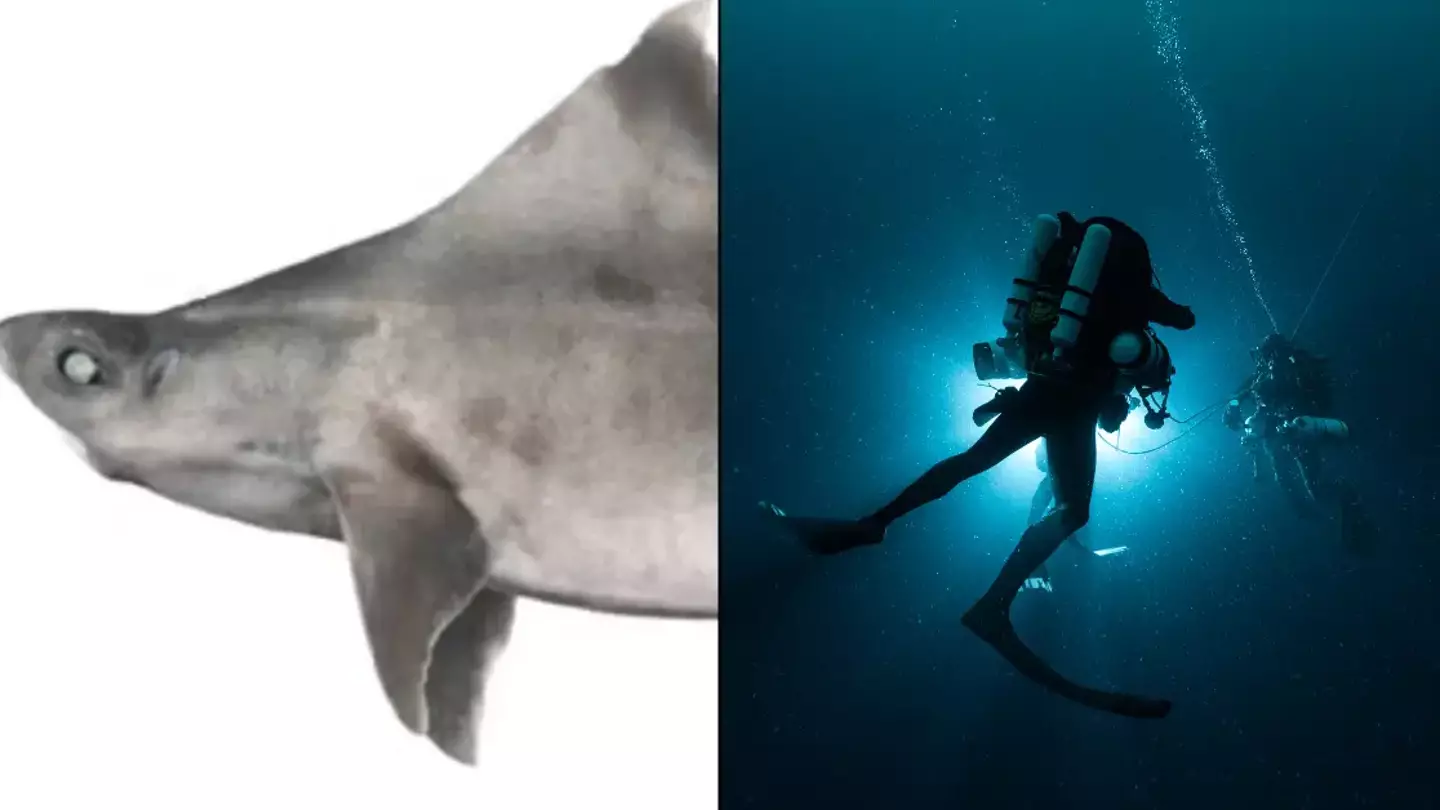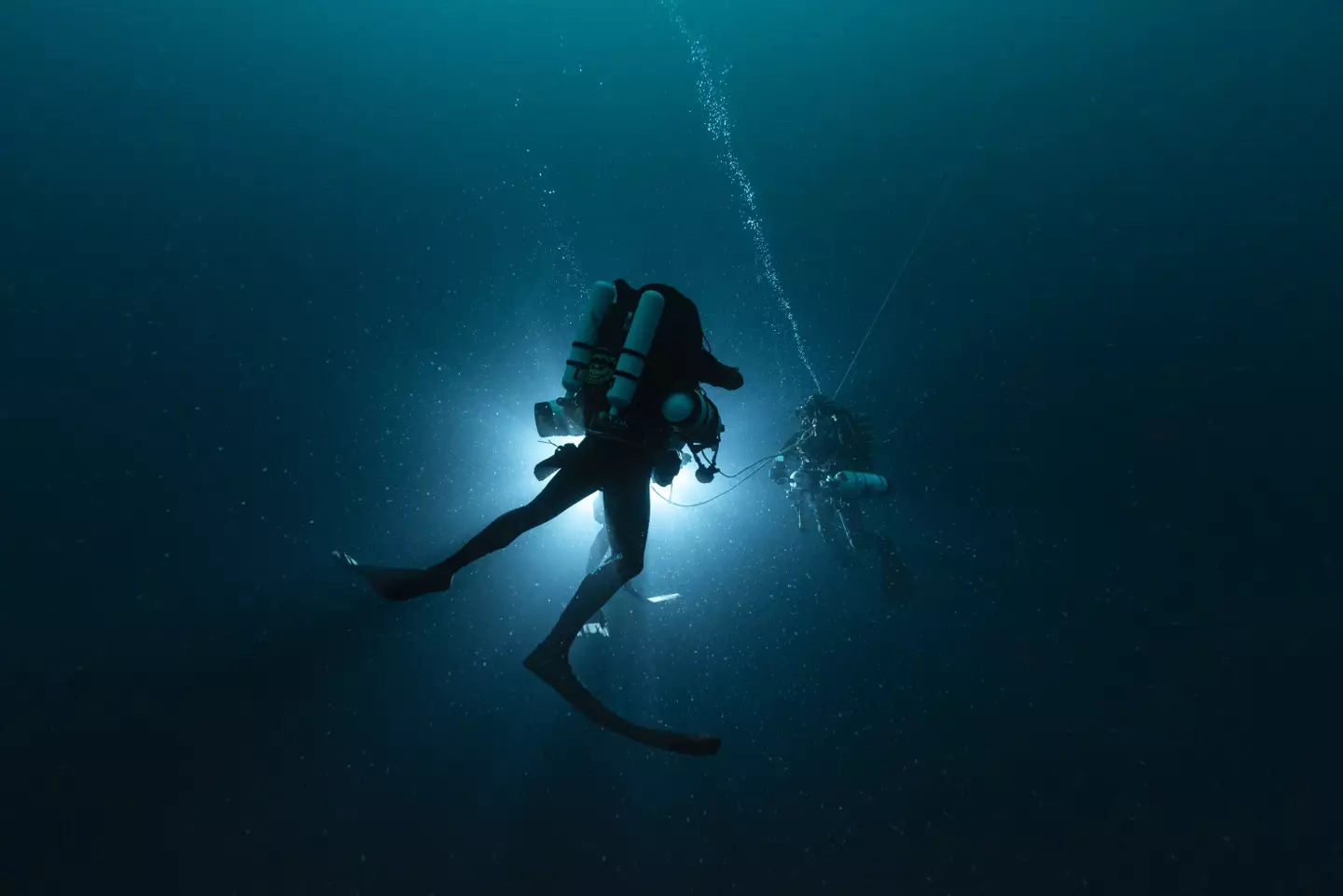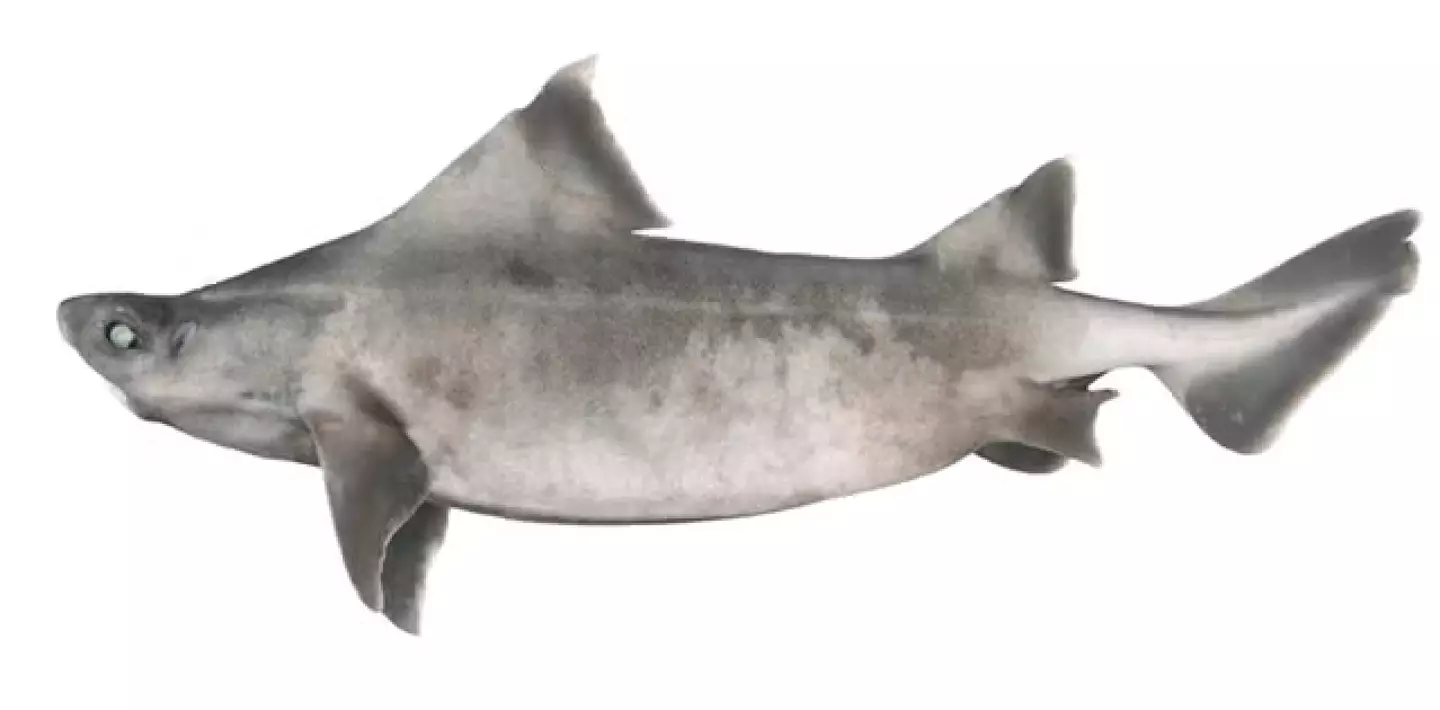
Scientists have discovered a rare 'ghost' shark with a rare disorder at the bottom of the ocean.
The deep-sea creature had a genetic disorder, which brought attention to the fact that marine species living closer to the sea floor can be affected by health abnormalities.
Better known by marine experts as the critically endangered angular rough shark, or to be more scientific about it, the Oxynotus centrina, scientists have found one with unusual colouration.
It was caught by a commercial trawler near Sazan Island, off the coast of Albania, at a depth of 656 feet (200 metres).
Advert

Though normally dark grey-brown or black featuring some dark patches on its head, in order to blend into the near pitch-black deep sea environment, this one was quite different.
The angular rough shark is found on the upper slopes of the eastern Atlantic Ocean, swimming down to depths of up to 1300m.
Adults can be identified by a compressed body, which also has rough skin, 'sail-shaped dorsal fins' and usually a 'darker colouration'.
However, this captured shark was different, as it was described in detail in a study for the Journal of Fish Biology, on 16 October this year.
This particular shark had less pigmentation, with a 'pale appearance' that featured 'white-greyish' patches, but as its eye pigmentation was normal, it isn't albinism, as this would cause the animal to have no pigmentation and red in its eyes.
It is thought that the shark had a case of leucism, which is a genetic disorder that affects melanin production, meaning that the pigmentation of its irises remain normal while the rest of the body may lack colour.
Lead study author Andrej Gajić explained to Live Science: "An individual can still produce melanin but lacks it in certain regions or [the] entire body."
They said the shark was 'was notably pale with almost whitish patches on the tail, but the eyes showed normal retinal pigmentation'.
He added that there had only even been 15 cases discovered of deep-sea species with pigment disorders.
The study reads: “This represents the first documented case of leucism in this species and the first colour disorder reported in the family Oxynotidae.”

It should be noted that with many species, a lack of pigmentation makes individuals stand out to predators and prey, thwarting and decreasing chances of survival.
In the dark, deep sea, light is so scarce that there is almost nothing left to detect, so it works in the shark's favour.
Upon inspecting its health after being caught, it seemed unaffected by its condition, as it seemed similar to other members of its species without the rare disorder.
Scientists concluded from this finding that pigment disorders in deep-sea sharks in particular may not hinder their survival or growth.